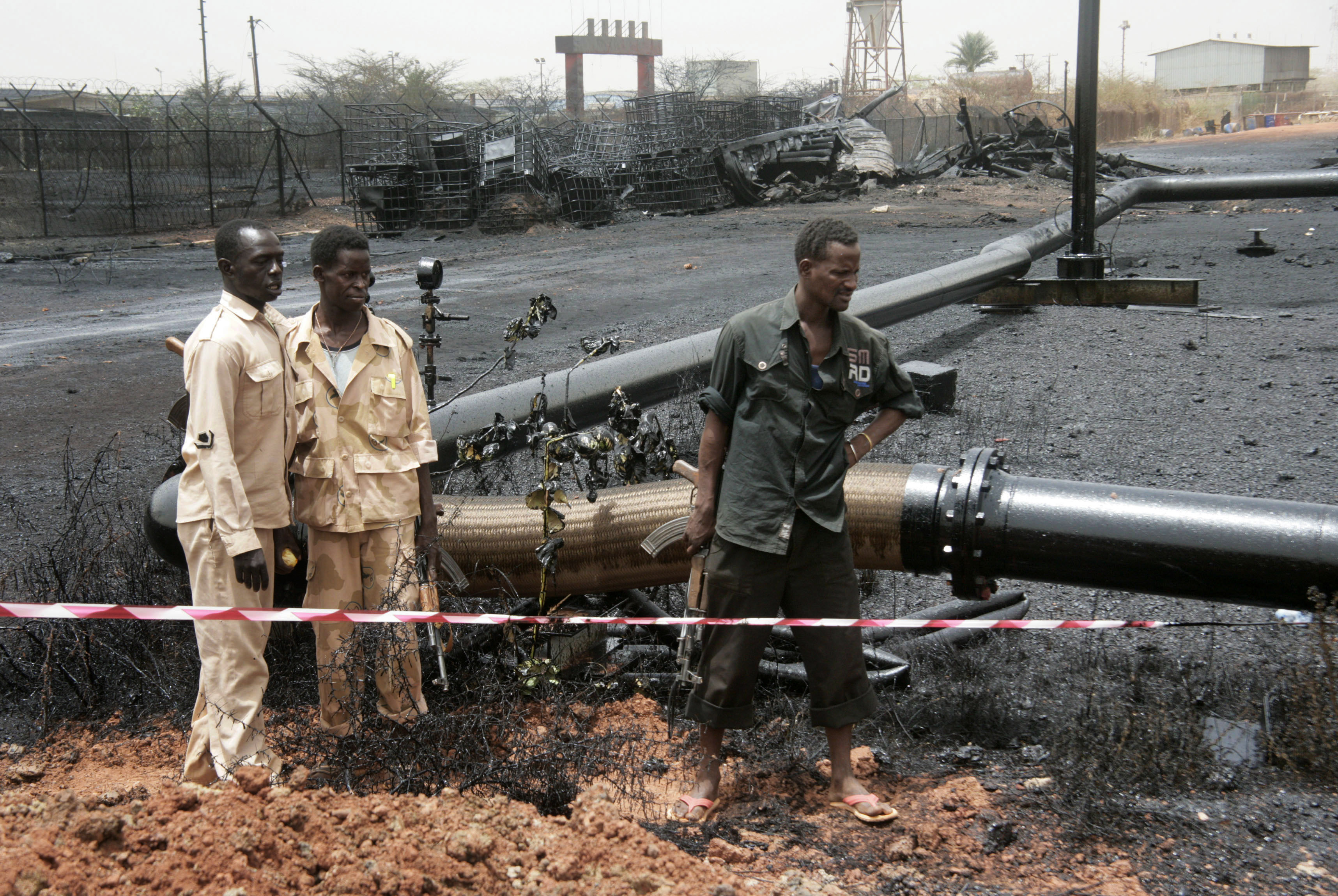
In the wake of an alarming escalation of violence and rhetoric between Khartoum and Juba, the African Union Peace and Security Council, or AUPSC, issued a decision on April 24 aimed at getting the parties back to the negotiating table. The strong tone of the decision coupled with its roadmap for a normalization of relations between Sudan and South Sudan makes it perhaps the most comprehensive statement of policy regarding the two states to emerge since South Sudan’s independence last July.
Among other things, the AUPSC’s decision called for Sudan to cease immediately aerial bombardments in South Sudan. It expressed the A.U.’s grave concern over the status of citizens of both countries in each other’s territory. The decision further called for the government of Sudan to accept, within 48 hours, the Tripartite Proposal concerning humanitarian aid access in South Kordofan and Blue Nile states and initiate political negotiations with the Sudan People’s Liberation Movement-North, or SPLM-N.
In an effort to ease tension, facilitate renewed negotiations, and normalize relations between the two Sudans, the AUPSC’s decision contains a roadmap, calling for the following:
- Immediate cessation of all hostilities, including aerial bombardments, within 48 hours
- Unconditional withdrawal of all armed forces to their respective sides of the Sudan-South Sudan border
- Activation of border security mechanisms such as the Joint Border Verification and Monitoring Mission, or JBVMM, and the Secure Demilitarized Border Zone, or SDBZ
- Cessation of harboring or supporting rebel forces in the other state
- Activation of an ad hoc committee under the Joint Political and Security Mechanism to investigate complaints and allegations made by one party against another
- Immediate cessation of hostile propaganda and inflammatory statements in the media
- Redeployment of all Sudanese and South Sudanese troops from the Abyei area
The decision further urged the parties to resume, unconditionally, negotiations within two weeks to discuss resolution of critical outstanding issues, including oil and transitional financial arrangements, citizenship and residency, border demarcation, and the final status of Abyei.
One of the most controversial clauses of the AUPSC’s decision is the provision stating that should the two sides fail to reach an agreement on outstanding issues within three months, the current facilitator of the negotiation process, the African Union High-Level Implementation Panel, or AUHIP, will be empowered to present final and binding solutions to all outstanding post-secession issues. While the provision aims to compel both sides to reach immediate agreement on outstanding issues, it risks a further loss of political will on either or both sides to engage constructively in the negotiation process. A failure to reach agreement within the next three months could lead to the A.U.’s endorsement of solutions to the current impasses that neither party accepts. Any or all of these possibilities could further undermine, as opposed to promote, peace and security within and between the two Sudans.
The A.U has called upon the U.N. Security Council to endorse this proposal with a resolution that would be legally binding on both states. To this end, the U.S. circulated a draft resolution to the Security Council on Thursday. The resolution threatened both Sudan and South Sudan with U.N. sanctions should they fail to meet the A.U.’s demand to stop hostilities and return to the negotiating table.
U.S. Ambassador to the U.N. Susan Rice, who this month holds the rotating Security Council presidency, said of the draft resolution, “The intention of the text was to provide swift and substantive support to the decisions of the African Union in the form that the African Union requested.”
Despite Ambassador Rice’s strong support, the draft resolution has been met with some skepticism, particularly on the part of China and Russia. These two permanent members of the Security Council are generally reluctant to impose sanctions and have signaled their disinclination to impose punitive measures on the two Sudans.
Jenn Christian contributed to this post.
Photo: Sudanese Armed Forces stand near burned oil pipes at the oil-rich border town of Heglig, Sudan (AP / Abd Raouf)

